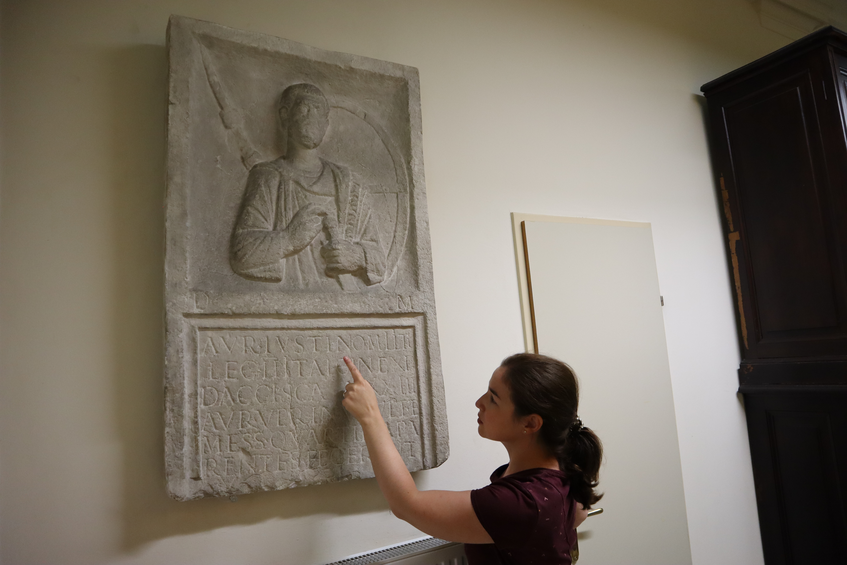Ancient History and Studies in Classical Antiquity (Bachelor)

© David Hack
The bachelor’s programme in Ancient History and Studies in Classical Antiquity mainly addresses Greek and Roman history covering its entire extent in respect of space, time and content. Moreover, it covers the study of sources such as epigraphy, papyrology and antique numismatics, and is closely connected to classical philology.
Bachelor of Arts
Degree Programme Code: 033 607
6 semesters / 180 ECTS credits (including 60 ECTS Credits of extension curricula)
Language: German
NO entrance examination
Facts & Figures
- Students: n.a.
- Graduates in the last academic year: n.a.
- Number of semesters needed for graduation (median): n.a.
Data updated on: 03.12.2024
Attention
Instruction Language German
Please note that the instruction language of this programme is German. To start the degree programme, you need to hold a certificate of German proficiency on C1 level.
Study programme
The bachelor’s programme comprises an Introductory and Orientation Period (STEOP) with the compulsory module Principles of Thinking in Historical and Cultural Studies and Acient History: Basic Knowledge and Methods, as well as the groups of compulsory modules Greek History and Roman History, and the compulsory modules Etruscology and Studies in Classical Antiquity, the group of compulsory modules Source Studies and the compulsory module Ancient Languages. To successfully complete the programme, students have to write a bachelor’s thesis.
Five concepts
which you will deal with during your studies:
- Epigraphy
- Papyrology
- Roman history
- Etruscology
- Antiquity
... and many more.
Overview of the programme structure & topics
Here you find the current offer of courses for this programme to gain better insight into the topics and structure. For more information please click on the respective level.
After Graduation
Graduates can pursue a career in the following areas:
- academic research and educational institutions
- teaching
- journalism
- cultural work and management in the public sector
- adult education
- cultural tourism.
Graduates' Perspective on the Degree Programme
Graduates ...
- say that this degree programme receives the grade: 1.6 (good)
- rate the level of difficulty as: 3.8 (high)
→ These results are basd on feedback from 5 graduates.
*You can find further assessments of the degree programme from its graduates’ perspective in the graduate survey of the bachelor’s programme in Ancient History graduation survey (in German).
Graduates ...
- find employment within 2 months after graduation on average.
- earn an average of € 2,558 (women) and € 2,599 (men) gross per month within three years after graduation.
- work full time at a percentage of 65% (women) and 70% (men) within three years after graduation.
*You can find further information on career entry and career paths in the tracking of graduates "Arts and Humanities".

